Leora J. Goodin
I'm a blogger dedicated to sharing insights on lifestyle and wellness. Through personal stories and practical tips, I aim to inspire and empower my readers to lead healthier, more fulfilling lives.
Students and teachers save a massive 71% on Creative Cloud All Apps
Black Friday and Cyber Monday 2023 Deals for Motion Designers, grab it now!
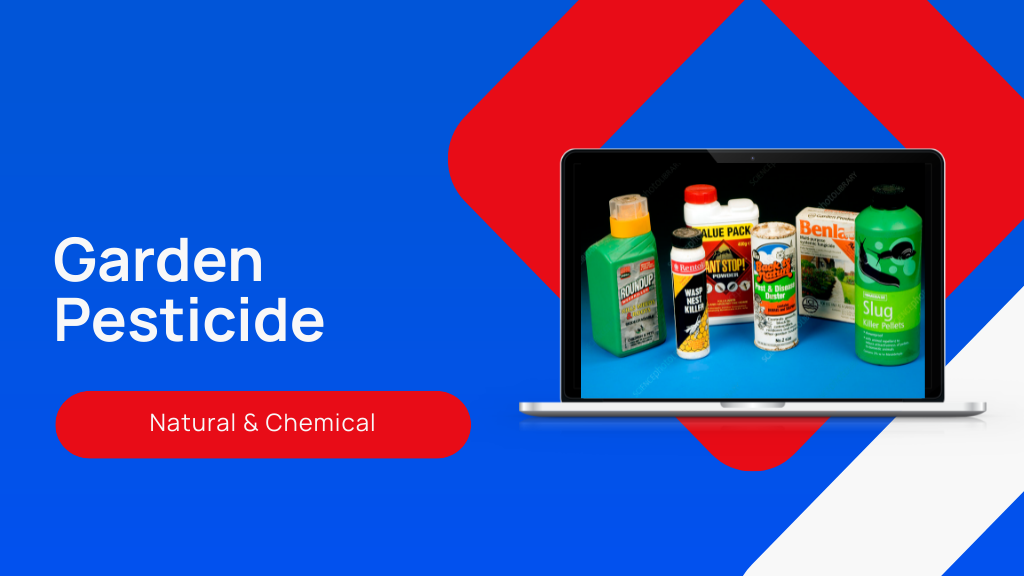
Uncover the top garden pesticides for home use, from organic options to chemical solutions—find out which fits your garden's needs best.

For home use, the best garden pesticides vary depending on your needs. EcoSmart Organic Insect Killer and Neem Bliss 100% Pure Neem Oil are great organic choices that are safe for children and pets, while Bayer Advanced and Ortho Home Defense offer chemical options effective against tougher infestations. Always apply them safely, following label directions. Immerse yourself in more detailed advice below to establish a more thorough pest management plan tailored to your garden's requirements.
While exploring garden pesticides, it's vital to understand the various types available. You'll find that garden insecticides and pesticides come in many forms, each tailored to specific pests and plants.
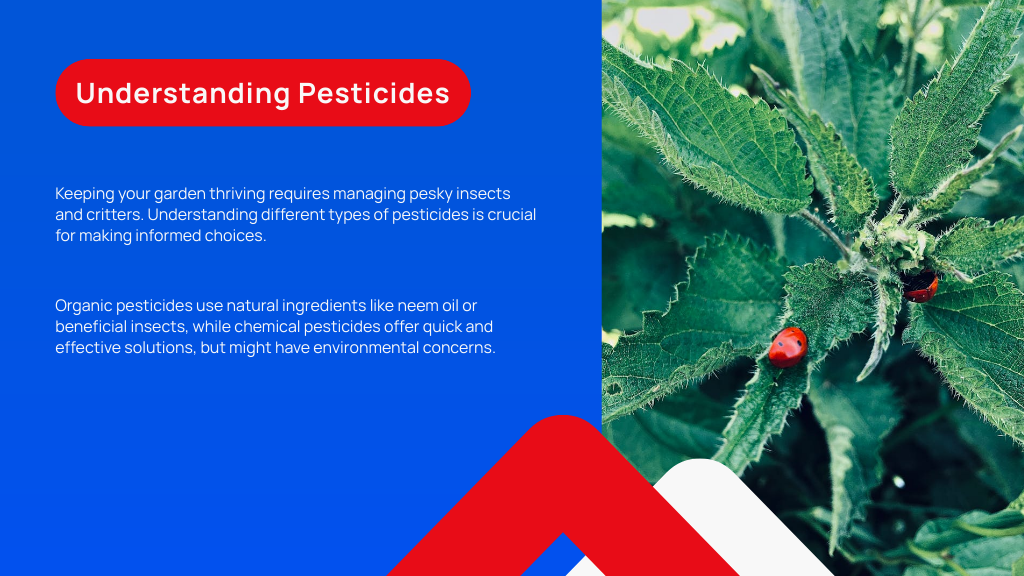
Chemical garden pesticides are widely used due to their effectiveness in quickly eliminating infestations. These products often contain powerful ingredients that target a broad spectrum of garden pests. However, they mightn't be the best choice if you're aiming for a more sustainable approach.
On the other hand, biological garden insecticides use natural predators or bacteria to combat pests, offering a gentler alternative. It's important to choose the right type based on your garden's specific needs and the kind of pests you're dealing with.
If you're concerned about the environmental impact of traditional pesticides, consider switching to organic options for managing garden pests. Organic methods aren't only safer for the environment but also for the plants and creatures inhabiting your garden.
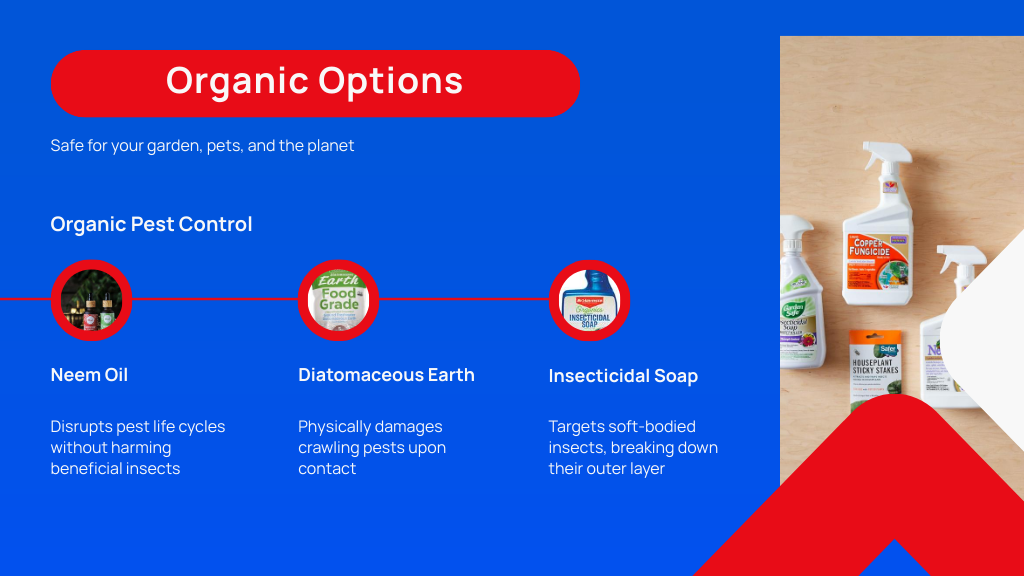
Organic gardening practices safeguard both environmental health and the well-being of all garden inhabitants.
Here are four effective organic options:
These methods help you maintain a healthy garden ecosystem.
After exploring organic options, it's important to also understand the role of chemical pesticides in garden management. These synthetics can be highly effective against a broad range of pests, but you'll need to handle them with care due to their potential environmental and health risks.
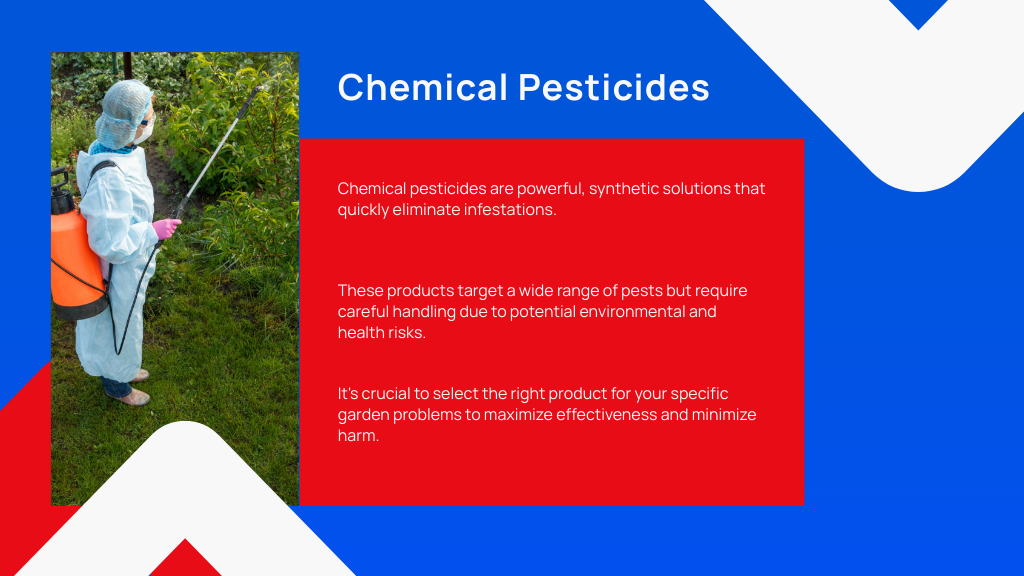
When choosing chemical pesticides, look for the active ingredients listed on the product label; these chemicals determine the pesticide's mechanism and effectiveness.
You should also consider the targeted pests and the pesticide's persistence in the environment. Some chemicals break down quickly, reducing environmental impact, while others may linger, potentially harming non-target species.
It's vital to select the right product for your specific garden problems to guarantee efficiency and minimize harm.
When using pesticides in your garden, it's essential to wear the right protective gear to keep yourself safe. Always make certain you're following the label instructions to the letter—this guarantees both effectiveness and safety. Don't forget to store any leftover pesticides properly to prevent accidents and maintain their efficacy.
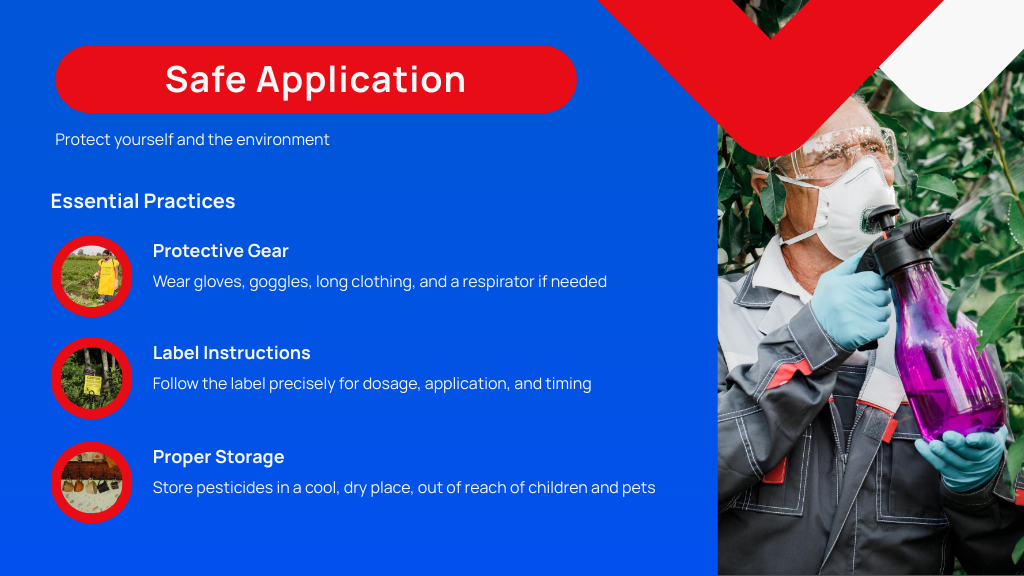
Before applying any pesticides in your garden, it's essential to select the right protective gear to safeguard your health.
Here's what you'll need to wear:
Now that you're equipped with the proper safety gear, it's important to focus on the correct application of pesticides in your garden.
Always read the label carefully before you start. It'll tell you how much to use and where to apply it. Don't guess or deviate from the instructions; overuse can harm plants, and underuse may not solve your pest problem.
Be mindful of the weather conditions; avoid spraying on windy days to prevent drift to other areas. Timing is vital, too. Some products are more effective if applied at specific times of day or in certain growth stages of the pests.
Lastly, mix pesticides as directed. Incorrect mixing can reduce effectiveness or increase harm to your plants. Follow these steps to guarantee safety and effectiveness in your pest management.
After you've applied pesticides, ensuring they're stored correctly is essential to maintain safety and effectiveness. Proper storage not only preserves their potency but also prevents accidental poisoning and environmental contamination.
Here are four key practices you should follow:
You might be wondering which brands offer the best garden pesticides for your needs. Let's compare the top organic options and look at how they stack up against traditional chemical pesticides. Understanding these differences will help you make an informed decision tailored to your garden's specific requirements.
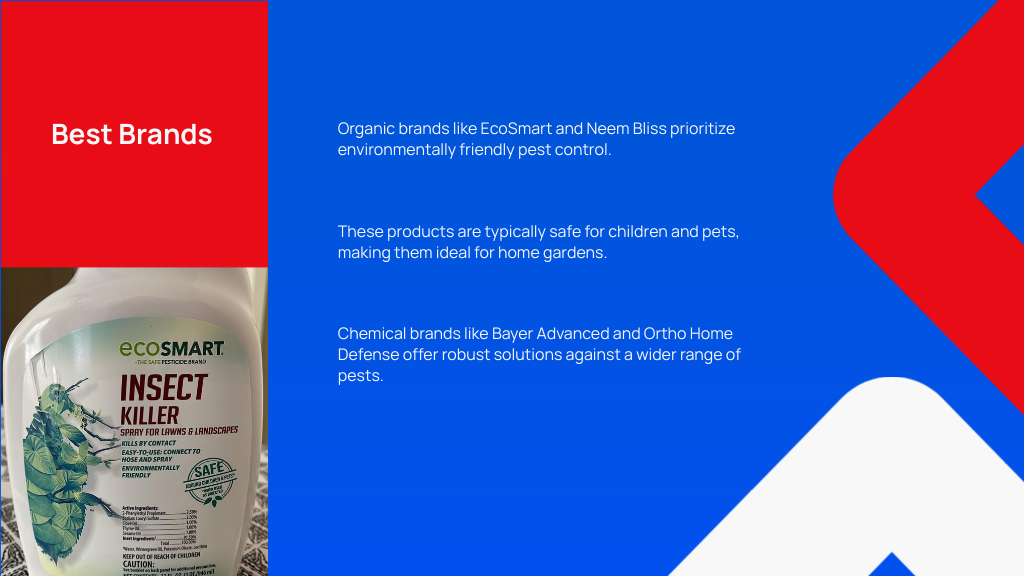
While exploring the best organic options for garden pesticides, it's crucial to focus on brands that prioritize environmental safety and effectiveness.
Here's a quick rundown of top picks that you can trust:
Choose wisely to keep your garden thriving organically!
If you're looking for more robust solutions, consider exploring chemical pesticides, which can offer powerful protection against a wider range of garden pests. Among the top brands, Bayer Advanced stands out for its broad-spectrum effectiveness, tackling everything from aphids to beetles.
Similarly, Ortho Home Defense is a go-to for those needing fast-acting results, especially against invasive critters like ants and cockroaches. Don't overlook Spectracide either; it's renowned for its ease of use and rapid response times, ideal for urgent pest issues.
Each brand has its strengths, so your choice might depend on the specific pests you're battling or whether you prioritize speed, spectrum, or user-friendliness. Always read labels carefully to guarantee safe and appropriate application.
Discover essential strategies to keep garden pests at bay and ensure a thriving, healthy garden.
To prevent future pest infestations in your garden, it's crucial to adopt proactive measures. Here are four key strategies to keep pests at bay:
1. Maintain garden hygiene: Regularly remove debris and fallen leaves where pests can breed. Keep your garden tools clean and sanitized.
2. Choose resistant varieties: Opt for plant species known for their resistance to pests. This reduces the need for chemical interventions.
3. Use natural predators: Encourage beneficial insects, like ladybugs and lacewings, that naturally control pest populations.
4. Rotate crops: Change your plant locations annually to disrupt the life cycles of pests, minimizing their chance to establish.
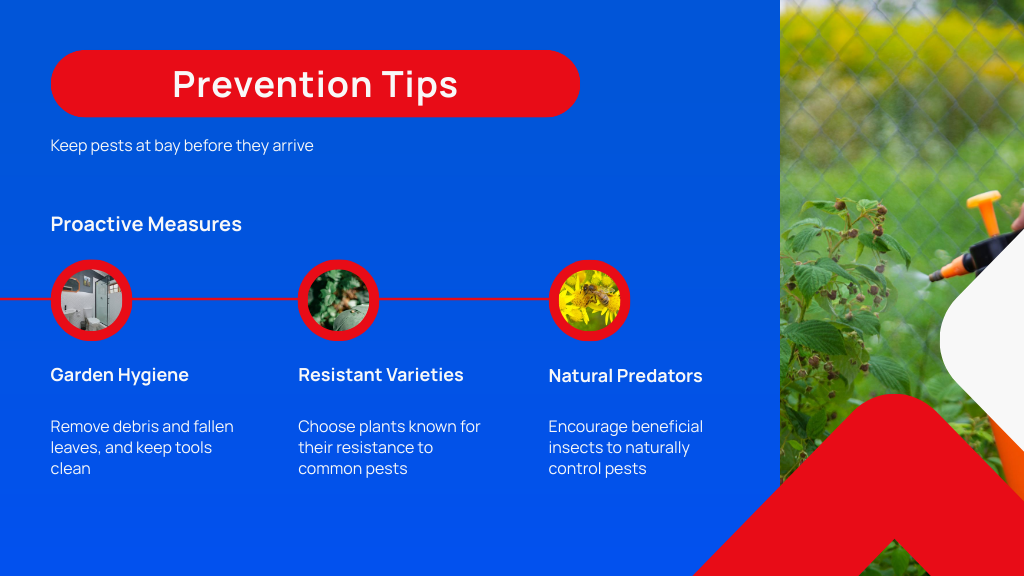
Just like Hercules faced his twelve labors, you too have battles to fight in your garden. Armed with the right pesticides, whether organic or chemical, you're set to protect your verdant domain. Remember, applying these tools wisely is key to safeguarding your little Eden. Stick to our tips, choose the best brands, and with diligent care, future pests will think twice before encroaching on your territory. Now, go forth and cultivate your paradise!

Your email address will not be published. Required fields are marked *